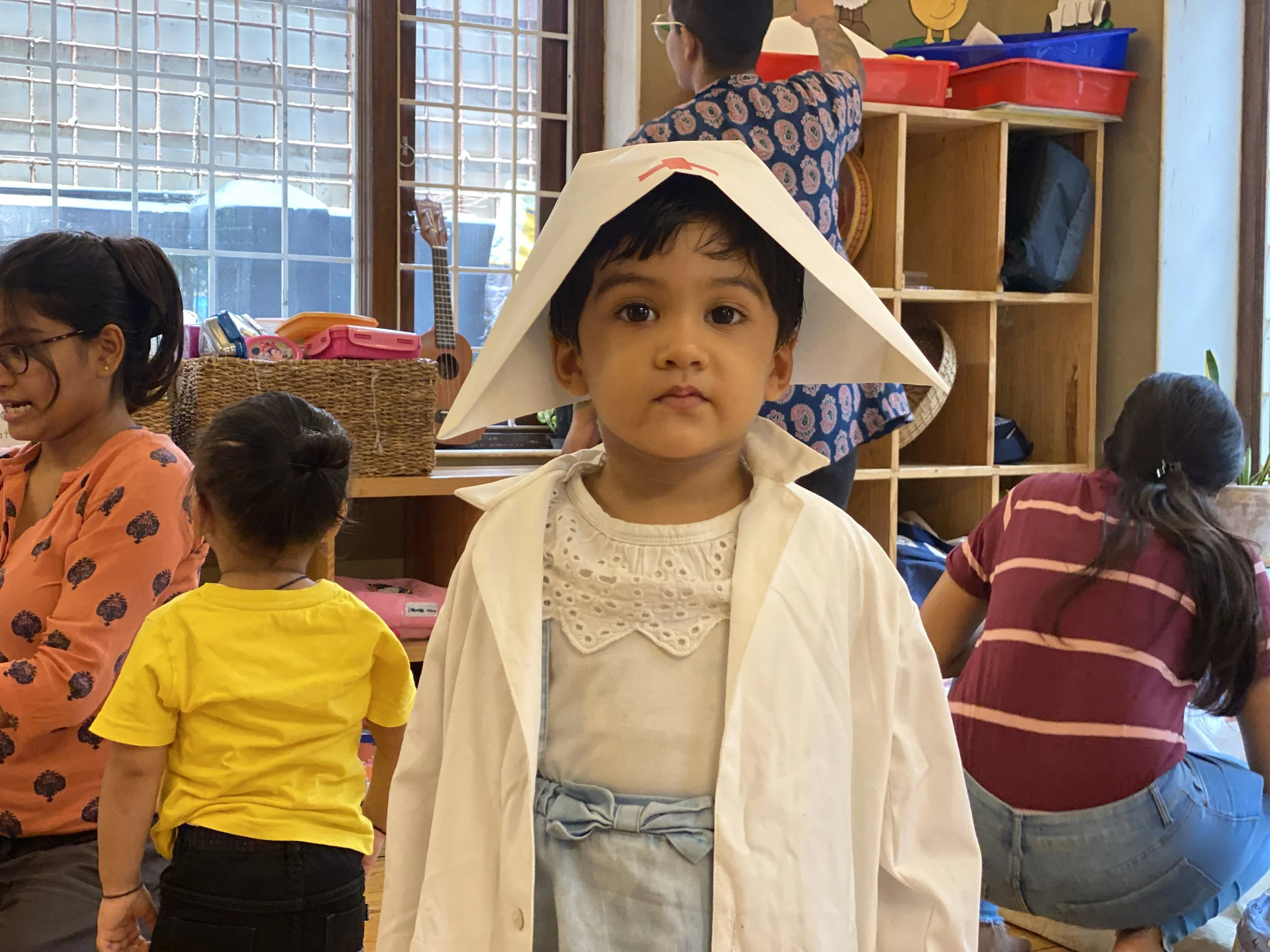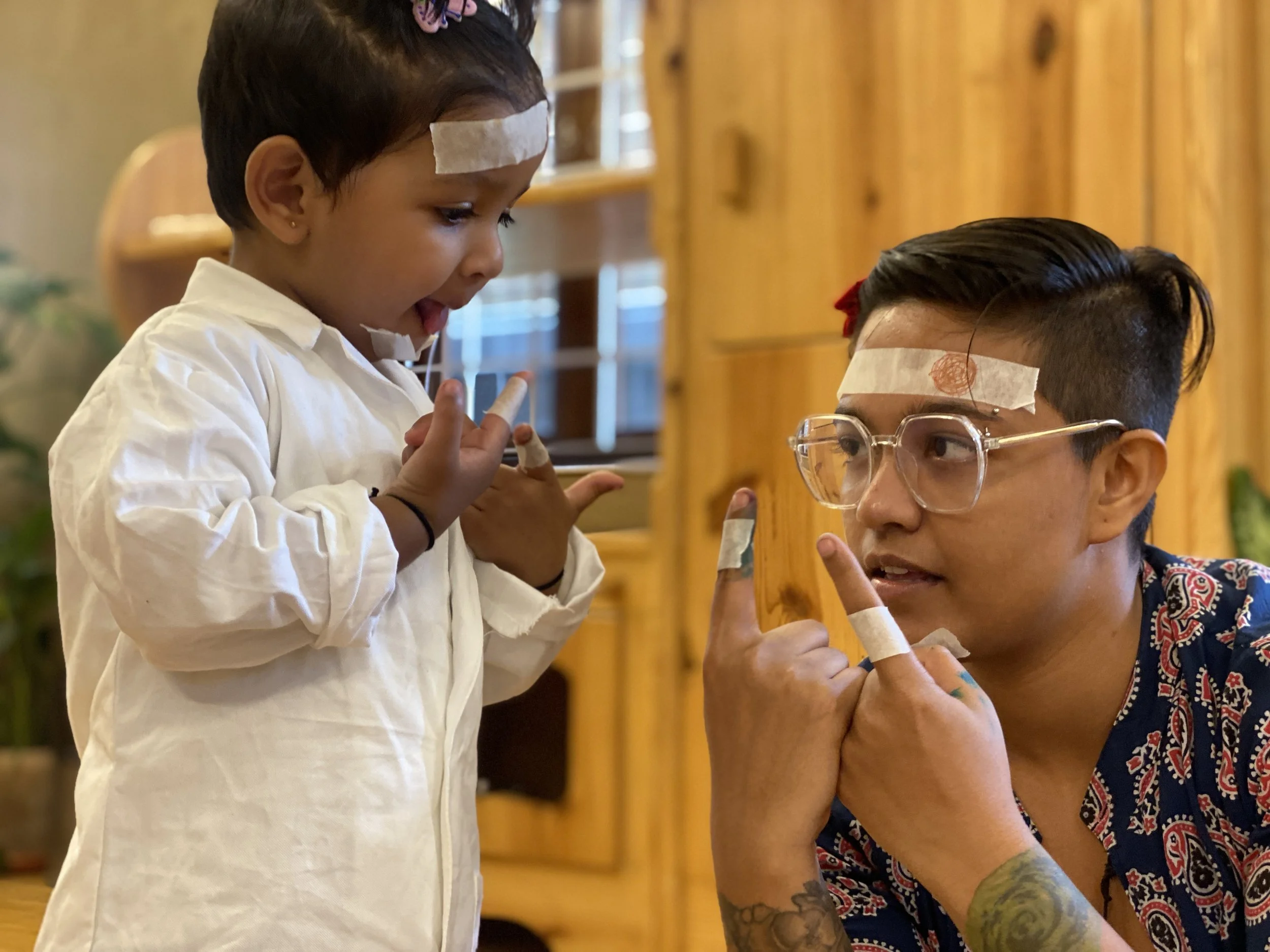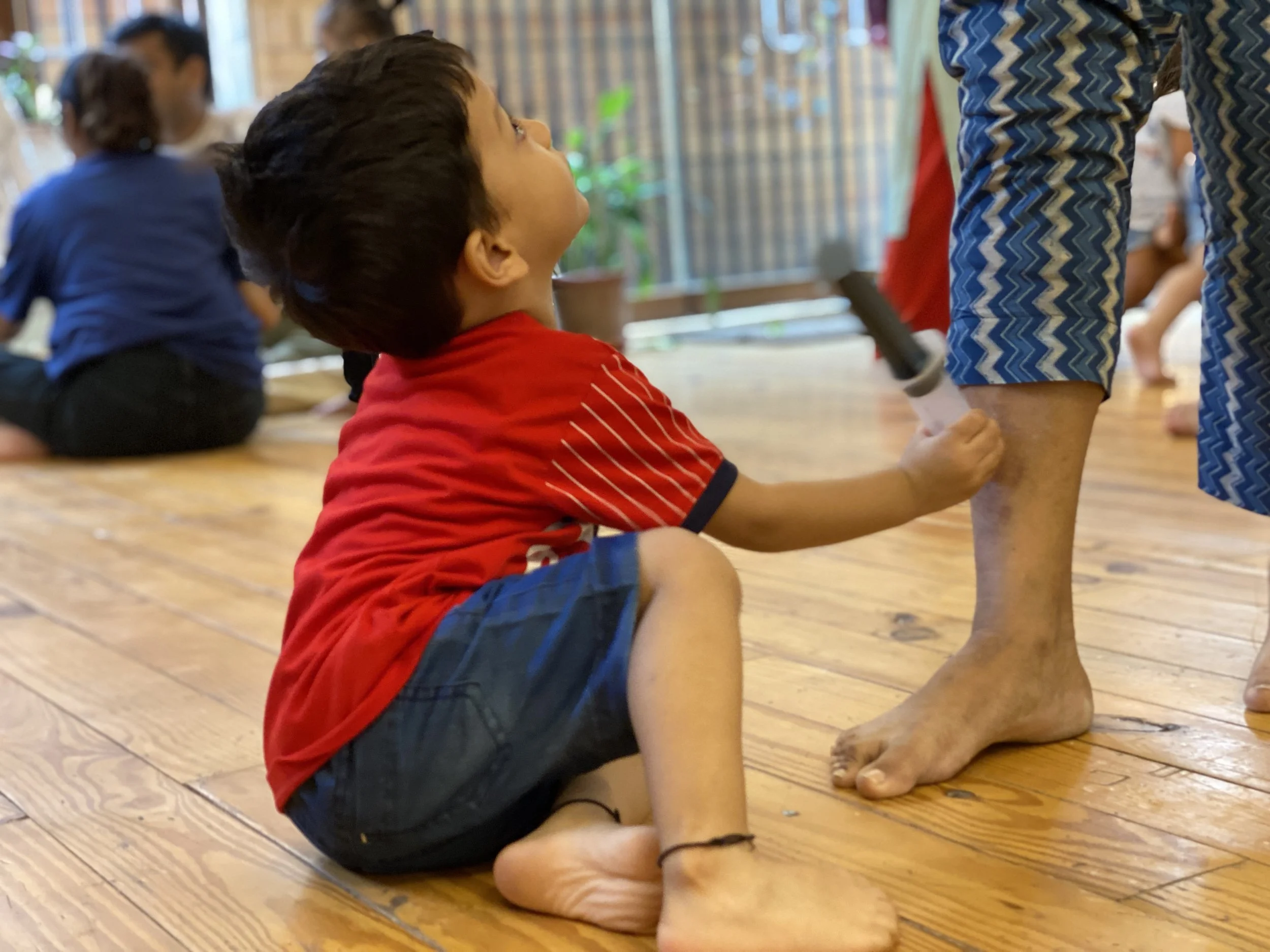Hospital Pretend Play
Date: 29/07/2022
When was it done: Small Group
Materials Required:
Doctor’s coat
Pretend nursing caps
Pretend syringes, thermometer, and medicines
Masking tape
Cotton balls
Hospital banner
Activity Prep:
Pretend medicines were prepared using water and food colors. Medicine bottles along with medium-sized droppers (pretend thermometers), masking tape (pretend bandage) and pretend nursing caps were arranged in trays.
Invitation Set-up:
The invitation was set up using a big hospital banner. Two facilitators sat under the banner wearing nursing caps with doctors’ kits. Kids were encouraged to wait in a designated waiting area and there was a lot of conversation about going to the doctor and getting themselves checked.
Process and Children’s Response:
Excited kids rushed to the doctors’ table and eagerly waited for their turn to get checked. Pretend thermometers were used to check the temperature and filtered water was used as oral medicine. Some kids pretended to be hurt and wounded, and pretend dettols and bandages were used to treat them. All children thoroughly enjoyed the activity and responded well to routine questions asked regarding their health and well-being.
Precautions:
Using food coloring to make pretend medicines just in case children ingest them during pretend play.
Skills/Concepts Developed:
Social Development - Pretend Play requires advanced thinking strategies, communication, and social skills. Through it, children learn to do things like negotiating, consider others’ perspectives, transfer knowledge from one situation to another, delay gratification, balance their own ideas with others, develop a plan and act on it, explore symbolism, express and listen to thoughts and ideas, assign tasks and roles.
Emotional Development - Pretend play offers an opportunity to learn emotional skills like, reading body language cues and building communication.
Learning About Self-Dramatic play experiences are some of the first ways children learn about their likes and dislikes, their interests, and their abilities. They experiment with role-playing and work to make sense of what they’ve observed.
Synthesizing Knowledge and Skills - Pretend play is an ideal way to blend skills and knowledge together. It provides circumstances that are practical and demanding of instincts built over time.














